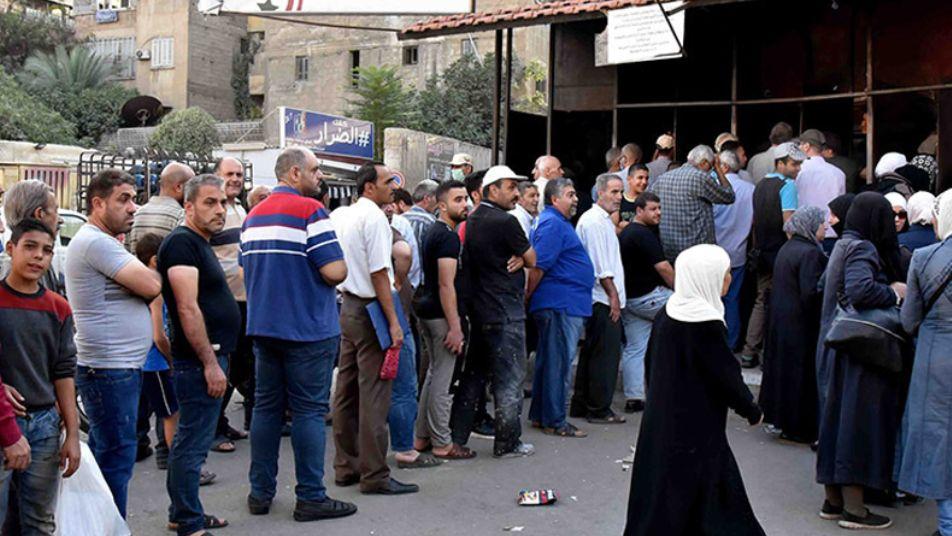Once again, in its usual way based on presenting itself as (a ministry that fights corruption and the corrupt), the Assad regime’s Ministry of Commerce announced the arrest of a person selling (bread) destined for animals (fodder bread) to citizens, but the ministry, as usual, did not address his name, work and other questions. .
A post published by the Assad regime’s Ministry of Commerce page on Facebook stated that a car was seized for its owner (AR) who was trading in fodder bread, and the amount of 500 kg was confiscated and the car was impounded, but the ministry omitted in its publication the full and real name The owner of the car and the goal of selling him the fodder bread, and whether he sells bread to citizens, or if he just violated the rules of the ministry, which repeatedly claims to limit all sales through it, without the sky to sell anything freely.
Kamal Muhammad (a pseudonym), one of the young men residing in the areas under Assad's control, told Orient Net, "The sale of forage bread is not new, as this phenomenon has spread since the Ministry of Trade announced the distribution of bread by those authorized under the item (reducing overcrowding), and in fact what What happened is that a catering employee named (Waheed Al-Hajj Ismail) is the one who takes charge of collecting (forage bread) from the bakeries, to be sold to owners of poultry and cow farms, but what is happening is the exact opposite.

He adds: "The latter, through a committee composed of him and two other people, collects the bread (which is not well-baked - burnt - with excess yeast - that has been two days or more), and then transports it in cars to the Jibreen area, where there are warehouses for sale, but the latter After transporting the bread to the warehouses, he, and through many young men, “sorts the bread,” so that the best and the best are selected and packed in nylon bags, and then sold as “bread fit for human consumption.”
On the young man’s question about how to persuade citizens to buy such a quality of bread, he replied: “It does not need convincing, just giving the name (Bite bread) to the bread originally intended for animals, with the price of the bundle being reduced by almost half, and taking advantage of the Ministry’s decisions regarding allocations according to the number of individuals. The family and the two bundles inside (one bag), are enough to make the citizen buy a bundle of bread for half the price and without the need to stand in line.
He added, "The most important thing is that the sale takes place before the eyes of what Assad's ministries call them (monitoring and inspection committees), given that the method used in this process is based on (its protectors are its thieves), so the person responsible for these sales operations is (an official and an inspector) in the supply.
The Assad regime’s Ministry of Commerce issued a decision in late December of last year, stipulating the work of a new mechanism for distributing ration bread allocations according to the smart card, where two rations of bread were given to (one bundle owners) during only one day per week and within one bag.
However, official media confirmed that the Assad government continued to provide bread to the people in Homs with plastic bags that lead to cancer despite its knowledge of this. The pro-Tishreen newspaper said on its Facebook page that the book sent by the Al-Baath University laboratory to more than one body affiliated with the regime stated that polycarbonate Ethylene used in packing foodstuffs and bread is dangerous, and it should not be used in packing foodstuffs, especially hot bread, and that there is a danger of the materials used in the bags interacting with hot bread, causing cancerous tumors with repeated use on a daily basis.